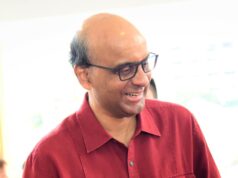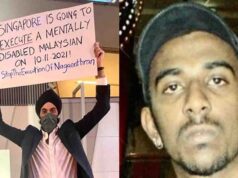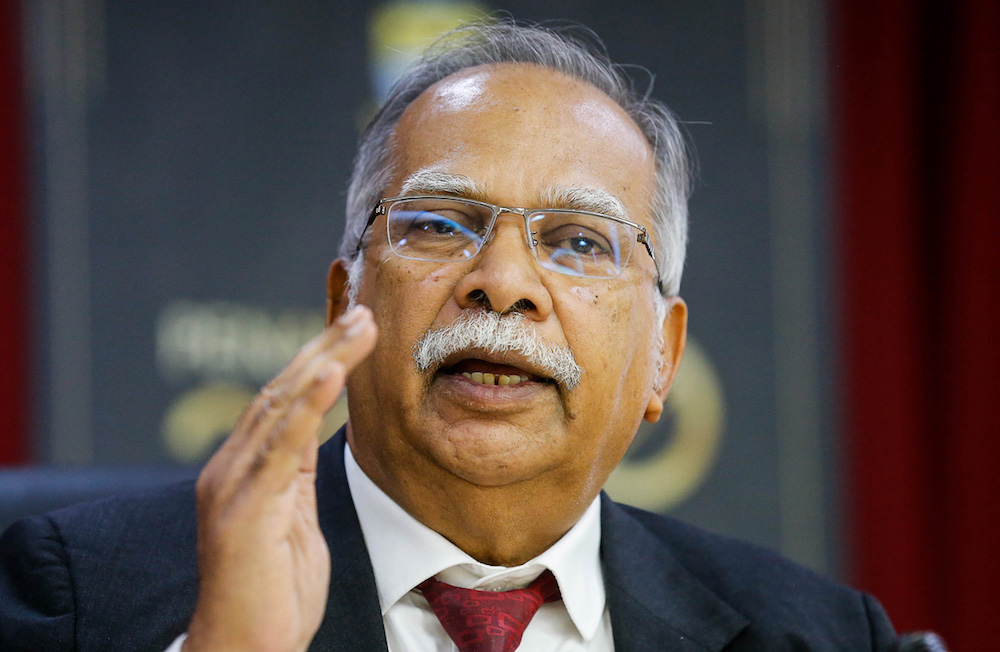The North American and European editions of her Rebel Heart tour featured a medley of Holy Water – a song from her latest album – and 1990 hit Vogue, while dancers in skimpy nun outfits danced on cross-shaped poles. That part of the show caught the particular attention of Singapore’s moral watchdogs.
“Religiously sensitive content that breach our content guidelines, such as the song Holy Water, shall not be performed in Singapore,” the Media Development Authority (MDA) said.


The hoops that Madonna and her concert organizers have to jump through are part of an well-trodden obstacle course that is quite familiar to Singaporean artists and performers.
The small country has ambitions of being the regional arts and cultural hub. Showy, expensive investments such as the Esplanade Theatres on the Bay and the National Gallery, as well as high-profile arts fairs demonstrate a desire to portray the city-state as a vibrant centre of artistic excellence.
But authorities in multicultural Singapore are often anxious about control over public discourse, particularly content dealing with sexuality, race and religion. That leads to a complicated relationship between the state and its artists.
“Outright bans would cause too much media attention locally and internationally,” said Alvin Tan, artistic director of theatre company The Necessary Stage.
“The censors are adopting more sophisticated means like regulation through funding or deploying the regulatory mechanism to venues since most belong to the government.”
Although the state is the country’s most generous benefactor for artistic endeavours, and artists are often allowed some latitude for their work, the money often comes with strings attached.
“As part of the funding principles of the [National Arts Council], there is a requirement and understanding with the arts groups and the applicants that they should not put any public institutions in a bad light or put them in a derogatory position,” Baey Yam Keng, parliamentary secretary for the Minister of Culture, Community and Youth, said.
Alvin Tan said the stage company was pressured by a state funding agency to boycott a work called Square Moon by former political prisoner Wong Souk Yee about her detention.
The company dropped the play from its festival line-up.
Even after a production has secured funding – whether from the state or elsewhere – it must still be vetted by the MDA. Scripts for plays and live performances have to be submitted to the regulator, which has the power to demand changes, even at the last minute.
“Practically speaking it’s a pain because the piece naturally changes in the rehearsal room, and having a parallel process of this-word-is-okay-this-word-is-not going on just hampers that process,” playwright Marcia Vanderstraaten told dpa.
In one case, the team behind the annual parody sketch show Chestnuts was all ready for their 2015 edition, which lampooned major events in Singapore’s 50th year of independence.
But just hours before the curtain rose on opening night, the MDA told them to cut about 40 minutes’ worth of scenes inspired by the case of Amos Yee, a teenager arrested for a YouTube rant criticizing the island’s founding premier Lee Kuan Yew as well as Christianity.
“They stated that the sketch in question pertained to an active legal case and so could not be permitted,” writer-director Jonathan Lim said. Yet sketches about a megachurch on trial for the misappropriation of funds were left untouched.
“Chestnuts is entirely funded by our fans through ticket sales, so we’ve never taken government money. In a way, that allows Chestnuts [to circumvent] the constraints that come with having a hand that feeds you which you cannot bite. We bite when we must,” Lim said.
“But as we discovered this time, there’s still the other non-feeding hand that’s still ready to slap you. Most frustratingly, the lines seem to be drawn in sand most of the time. It’s often hard to guess what might suddenly be sensitive.”










